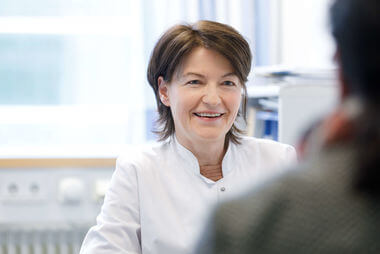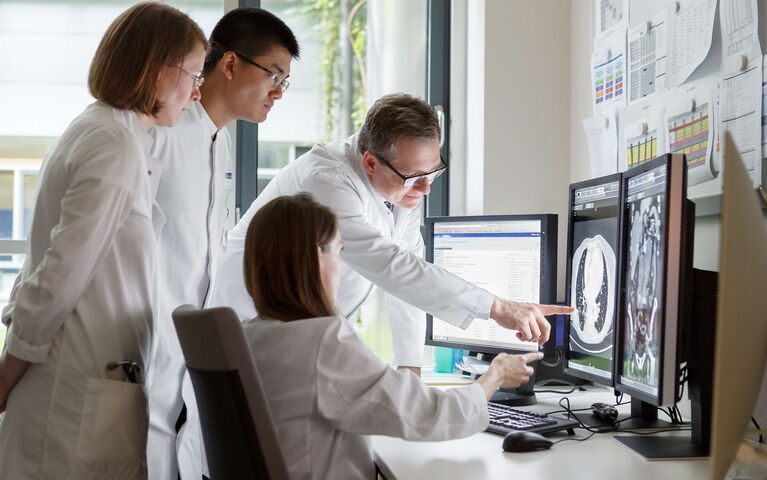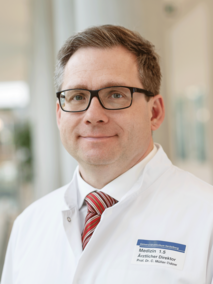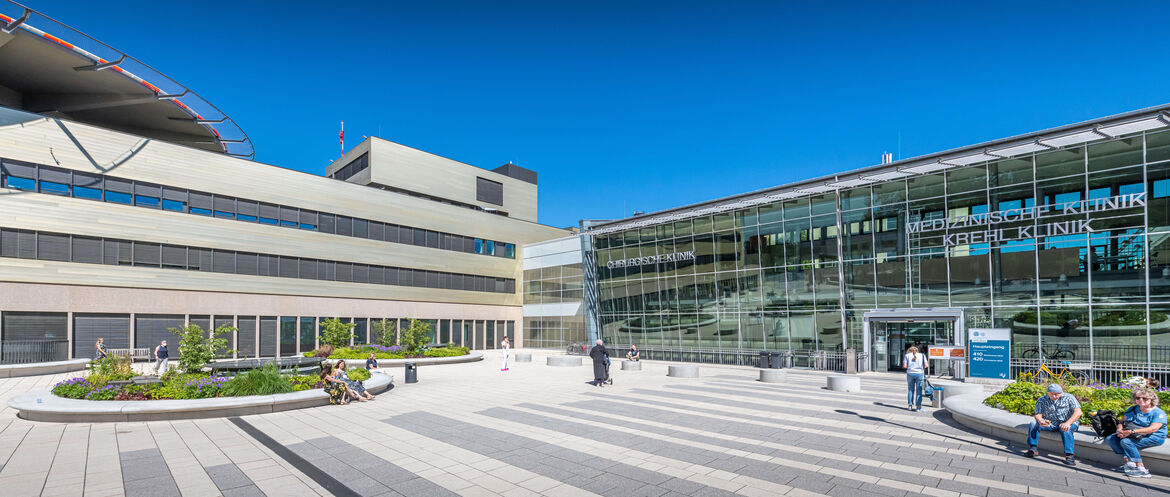Department of Hematology, Oncology and Rheumatology
Best treatment options and cutting-edge research
At Heidelberg University Hospital, with over 300 stem cell transplants annually, you will find one of the largest and most renowned centers for hematology, oncology and rheumatology in Europe. Under the direction of Professor Dr. Carsten Müller-Tidow has put together a highly specialized team of doctors and scientists who have extensive experience, especially in the treatment of multiple myeloma, leukemia and lymphoma.
CAR T Cell therapy
We offer CAR T cell therapy in acute leukemia and for the treatment of lymphoma. In this cell therapy, immune system cells (T cells) are genetically re-programmed so that they destroy the tumor cells. We would be happy to inform you whether this type of therapy might also offer promising results for your case.
Further information:
Therapies of the future available today
The close integration of clinical care and research enables us to offer innovative, promising therapies. We use the latest medications, often in clinical trials that are not yet applied in routine practice, however, often deliver very promising effects.
Innovative therapies with the most promising effects
- Autologous stem-cell transplantation
This form of therapy is particularly suitable for patients with patients with multiple myeloma. Treatment is sometimes even possible as an outpatient (treatment period approx. 4 weeks) - Allogeneic stem-cell transplantation (treatment period approx. 3 months)
- Chemotherapy and Immunotherapy, including CAR T cell therapy
- Innovative and classical radiation (Dep. for Radiooncology)
- Radioimmunotherapy
- Tumor vaccination
Pioneering research: Target-oriented treatment through comprehensive knowledge
Since 1985, when one of the world's first stem cell transplantations was performed here, Heidelberg has played a pioneering role in stem cell research. Among other things, our physicians work on leukemia and lymphoma research. The research and production of novel cell therapies and vaccines is one specialization of our department. Close cooperation of our hospital with the German Cancer Research Center and the National Center for Tumor Diseases underscores the strength of Heidelberg research.
Our own bone marrow and stem-cell transplantation ward
Special immune system protection

One of our special features is our own bone marrow and stem cell transplantation ward with 18 patient rooms. These are equipped with "HEPA filters": the air is specially filtered to minimize the risk of infection for our immunocompromised patients.
For the same reason, there are no long transport distances for our patients between different wards: the intensive care unit is integrated into the stem cell transplantation unit.
At the highest level: Comprehensive care by our specialists
In the Department of Hematology, a large specialist team of more than 30 physicians is available to our patients. These experts come together with colleagues from other departments at the "Tumor Board," where they discuss each particular case and develop an individualized treatment plan. In this way, we find the best possible - and above all, the most promising - therapy for each Patient.





